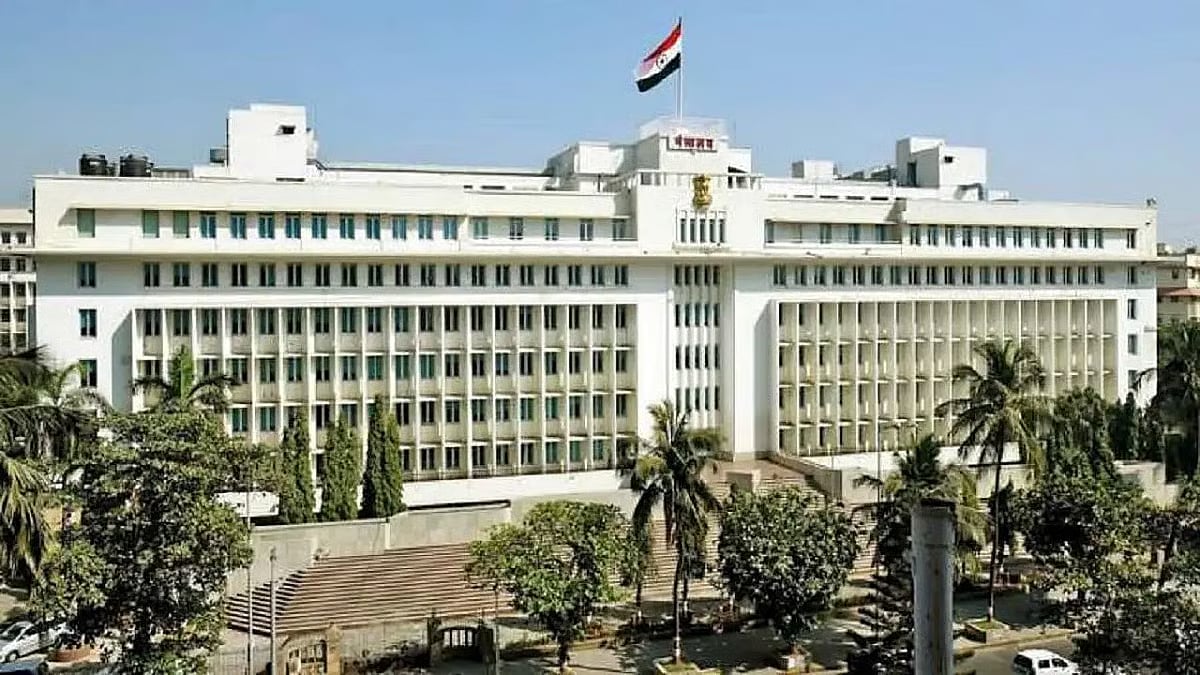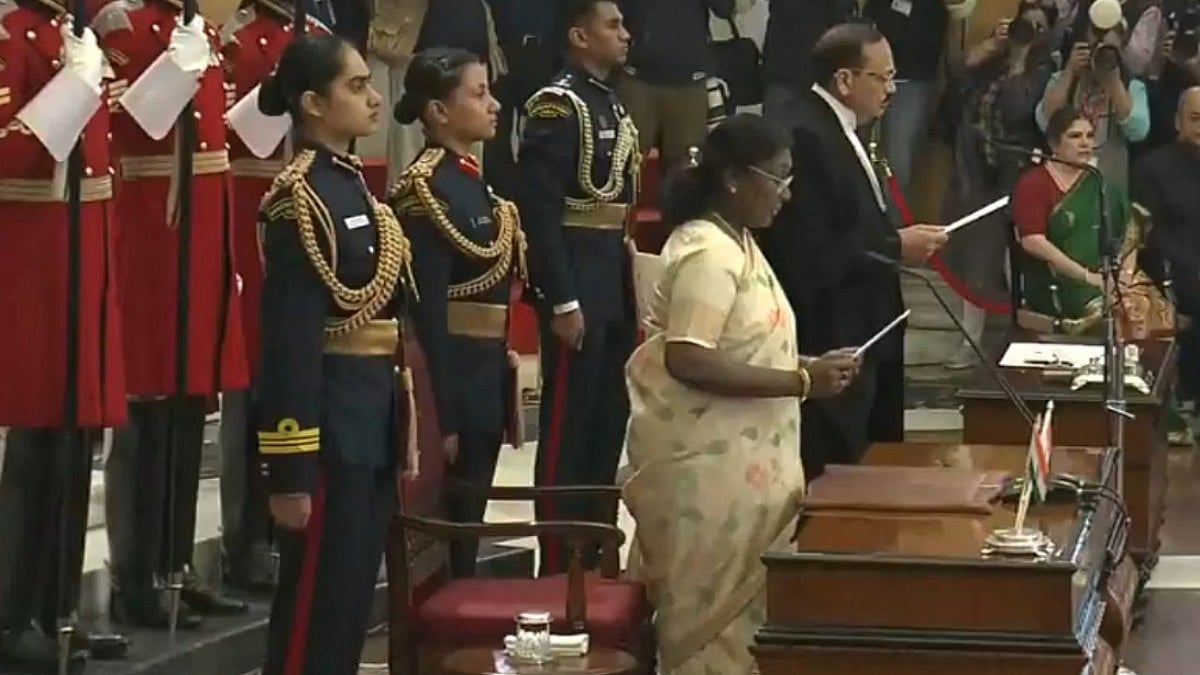Indore: The National Education Policy was framed in 1986 and modified in 1992. Now, considering the significant changes that have taken place in our country, society, economy, and the world at large since then, the Union Cabinet approved the New Education Policy (NEP).
Starting from changing the name of the Ministry of Human Resource Development to the Ministry of Education, many other changes, especially the decentralisation of the education system, have been announced in the policy.
With the lens of their experience and knowledge, renowned educationists from Indore review and share their take on the New Education Policy 2020.
We needed an upgrade
"Policy-wise it is a good policy. Guidelines are still to come. It was really needed. There are many changes in the last 15 years. With online classes and new techniques of teaching, a new policy system is needed for the day. It was a time we went for traditional studies. We need to upgrade everything. There are many positives we can see. More details and understanding will be clear once we get complete guidelines.
- Muktesh Singh, President, The Emerald Heights International School
Developing 21stcentury skills
“The new education policy will also be building character and creating holistic and well-rounded individuals equipped with the key 21st century skills. Specific sets of skills and values across domains will be identified for integration and incorporation at each stage of learning, from pre-school to higher education.
Curriculum content will be reduced in each subject to its core essentials, and make space for critical thinking and more holistic, inquiry-based, discovery-based, discussion-based, and analysis-based learning. The mandated content will focus on key concepts, ideas, applications, and problem-solving. Teaching and learning will be conducted in a more interactive manner
Old wine in new bottle, beware of corruption
“As such we are calling it the new education policy, but in my opinion it is old wine in a new bottle. We had the same 5+3+3+4 Curricular and Pedagogical Structure about 25 years back. So, it is not a new innovation, it is just bringing back the old system. The structure of 5+3+3+4 is normal.
We are okay with the announced policy. It is a tested system. We are going back to it. I only disagree with the scope of Babu Raj, i.e. corruption this policy has.
With the transfer of power to individuals and local authorities, i.e. decentralisation, the chance of corruption is higher. Otherwise, it is good. The system is good but the question is how it will work.
It will be a failure if authorities do not work and are corrupt. People in the helm of the education system are not educated and if they have narrow thinking, then it will not work.
Changing the name to education will not help in transforming it. We need responsible and experienced persons heading the education system.
The 5+3+3+4 system is a tested system and even functional in foreign countries. But we must remember that there is no bias in foreign countries and hence, the decision taken up by principals and lecturers works.”
- Dr John M Chacko, Chairman, Laurels school International Indore
All students will take school examinations in Grades 3, 5, and 8 also, which will test the achievement of basic learning outcomes, and application of knowledge in real-life situations.
The Board exams for Grades 10 and 12 will be continued. It will be made ‘easier’, as they will test primarily core capacities/competencies rather than months of coaching/memorisation.
Boards may over time also develop further viable models of Board Exams, such as - annual/semester/modular Board Exams; offering all subjects beginning with mathematics, at two levels; two parts exams or objective type and descriptive type.
A National Assessment Centre, PARAKH (Performance Assessment, Review, and Analysis of Knowledge for Holistic Development) will be set up as a standard-setting body for setting norms, standards, and guidelines for student assessment and evaluation for all recognised school boards.
Vocational courses will be introduced from class VI. Coding will also be taught from class VI.
This policy would develop 21st century skills in students, would reduce stress and would prepare them for future requirements of jobs.”
- UK Jha, Principal, Choithram School North Campus
Will play a significant role in producing quality HR
“The new education policy approved by the Cabinet under the renamed ministry as Ministry of Education instead of MHRD will be a hallmark in Indian Education System as India will achieve 50% (GER) Gross Enrolment Ratio.
It is very good to offer wide flexibility in the choice of subjects across streams at school level, and better to harness the talent of students rather than rigid streams of subjects. Integration of academics, co-curricular and extracurricular activities with better pedagogies will provide wide grooming of students.
Three language policy will continue with the inclusion of one local language rather than mother tongue till class VIII which will help in learning the process for first-generation students and language will not be a barrier but availability of books has to be ensured.
Overall policy was long-awaited for the new generation, is very fantastic and will play a significant role in producing quality human resources who will be equipped with content knowledge, intellect, skills, values and attitude, to face challenges of the future successfully to navigate the nation in the desired direction of growth. But success will depend upon resources physical (Infrastructure, technology and human resources i.e. quality teachers and its execution with honest follow up.”
- Dr Dinesh Sharma, Principal, Vidyasagar School
Skill orientation will help students & country
“In my view, the new National educational Policy has envisaged some far-reaching changes to catapult education in India into the 21st century. It has proposed significant changes to the structure and approach of both higher-level education and school-level education.
What is now important that the aspirations articulated in NEP 2020 match the implementation, which considering the current educational scenario would be a major challenge. But if properly implemented with seriousness the ambitious targets can be met.
In school-level education, the new structure of 5+3+3+4 is a welcome change as it advocates a more activity-oriented approach which enables more effective learning at the foundational level; while also mainstreaming the pre-school which was up to now left largely unregulated.
Focus on 21st-century skills such as communication, critical thinking, creativity and collaboration are properly emphasized in the document but need effective implementation. While at the levels of middle and secondary school, it is a positive thing that greater flexibility in the choice of subjects and learner autonomy is envisaged.
The focus on experiential learning and an interdisciplinary approach to the curriculum will help the students equip themselves with the skills for practical life. Independence and autonomy in learning will transfer the responsibility on the student for his own education; the skewed focus on teaching and examination results today place an unreasonable burden of responsibility on teachers for students’ achievement, which makes them less effective in facilitating the real-life education needs of the students. Hence, the shifting of emphasis away from examination-oriented achievement is a positive step.
Overall the wide-ranging reforms are targeted at making the educational approach more contemporary and skill-oriented ultimately benefiting industry and the country as a whole.”
- Winston Gomez, Principal, New Digamber Public School

The policy makes all the right noises, now implement
· NEP 2020 sets goals and deadlines. It gives a direction. For example, 100% gross enrollment ratio from pre -primary to grade 12 by 2035 (difficult considering present state of enrollment), foundational literacy and numeracy by class – 100% to be achieved by 2025, ECCE for ages 3 to 6 to be achieved 100% by 2030 so that all children are ready to enter grade 1.
· Burden of ECCE will be on resource-starved Aanganwadis.
· Research shows that mother tongue is the best medium of instruction at the primary stage. It will not find favour with private schools and parents who are ambitious and consider English as a language of the elite and also due to economic reasons.
· Exposure of child to multilingualism at an early age between 2 to 8 is a well thought out idea.
· Digital education and education to special needs have been given satisfactory representation in the policy. However, more needs to be done on these fronts.
· Making B.Ed. a four year integrated course/degree is yet another praiseworthy initiative.
· The assessment will be competency-based to test analysis, critical thinking, and conceptual understanding. The regular formative assessment would be the norm with less emphasis on summative assessment. This is an attempt to eliminate the culture of coaching classes, and if achieved, it will give a fresh lease of life to our children. Students will get a chance to give the Board exam again in the same year for improvement, which is a welcome step.
· Semester system will allow students the flexibility to learn subjects like arts and sports in shorter modules.
· RTE 2009 to be reviewed so as to include students up to class 12. Expensive proposition and will further stress the financial resources of private schools and state governments.
· Yet again a welcome step is open learning for classes 3, 5 & 8 through NIOS.
· 50 hours of professional development every year by a teacher will keep teachers updated.
· In National Curriculum Framework 2005, an excellent document will be updated by end 2020 and then every 5 years is a good step.
· 6% of GDP for education. However, this has been talked about since 1948 and not achieved till date.
· Another issue which has not been addressed properly is the critical shortage of qualified and trained teachers.
· Infrastructure needs require huge sums of money. Only time will tell the commitment of the Government towards high-quality education as envisioned in the NEP 2020 upgrading infrastructure in public school system.
These above two factors, if not addressed, will widen the gap further between private and public schools. Thus, children from poor families will get further disadvantaged."
- Neeraj Kumar Bedhotiya, Principal, Daly College














